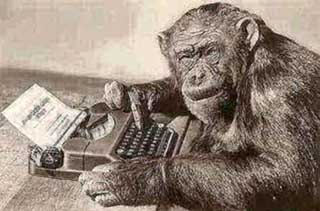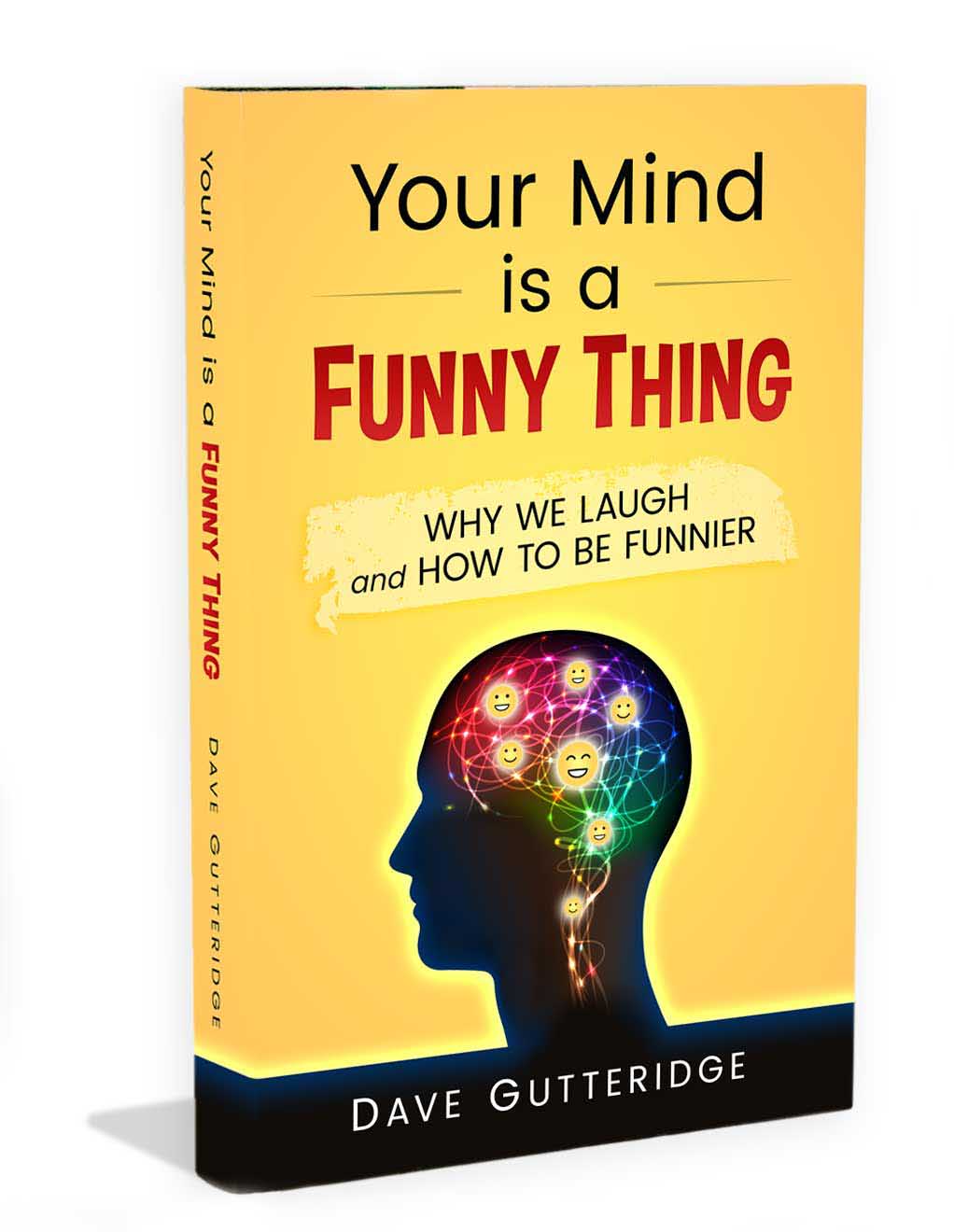The line between a real comedian and just somebody on stage

After shows I often try and work with the comedians, especially the open mikes, to try and improve their acts. When we talk about what jokes worked and what jokes didn't, there's only one objective standard by which to measure, and that's whether or not the audience laughed.
But even that standard can be disputed. It often happens that I say the audience didn't like a joke, and the comedian I'm talking to will say, "but I got laughs." And they did. What they are missing, though, is that it's not the comedian's job to just get some laughs.
The fact of the matter is that just about anyone, whether a self professed comedian or not, can get on stage, and given enough time, will say something that someone will laugh at. On the one hand, you have the volume of things being said. With every statement, it's another role of the dice that something amusing might come of it. On the other hand, you have a random selection of people in the audience. Each person has a different sensibility, a different set of associations with what's being said on stage, and so there's always a chance that one of those sensibilities will be a good recipient. When you think about it, in the combination of a series of offerings by the comedian with the variability among the audience members, the odds of finding a hit among the attempts is pretty good. It's a little like that thing they say where enough monkeys working long enough will eventually write the works of Shakespeare.
In fact, in my experience, real bombing on stage doesn't usually happen by a comedian simply failing to provide workable material. It's usually that the comedian, in response to a certain amount of audience silence, and in combination with their own insecurities, devolve into meta-commentary about their act, or panic, or become negative, or in some way create an atmosphere that actively turns the audience from them. So long as a comedian stays committed to trying to make something happen, the audience usually has a favourable response.
Despite most people's perception that a standup comedy performance is where a comedian is always on the verge of bombing, the reality is that the odds are pretty high that they will get at least some laughs over the course of their time on stage.
The issue is that "some laughs" isn't good enough. It's not what the comedian is there for.
We often talk in comedy circles about the difference between "friend funny" and "stage funny." The difference is something that we could go into great detail about, but for now it's good enough to acknowledge that "friend funny" material is contingent on both your friends knowing you so they have more context that supports your punchlines, and also that your friends are a pre-selected audience. You're friends because you get along, and you get along because you share enough similarities that you're likely to have a similar sense of humour. Being "stage funny" is being able to go beyond that, to provide an audience with enough context that they don't need to know you personally, and to be able to relate to audiences well enough that your sense of humour has broader appeal than those you might just hang out with.
When you only get some laughs, when just one person or only one group in the room laughs, it's sort of like you've sifted the room for some potential friends. You've found a hit where your random statement met someone who was the right target.
This isn't enough to build an act on, but the comedian who hears that laughter from the back of the room is deceiving themselves into thinking this indicates their joke worked. After all, the point of doing comedy is to get laughter, and they got laughter, so what's left to question? It's perfectly understandable that a comedian would regard this as a form of success.
Not that it's a bad sign that one person laughed, it's just that it's under the threshold for assessing with confidence whether or not a joke really worked. To become a successful comedian, you need to have consistency, a reasonable level of confidence that when you get in front of that next audience is going to laugh at your material. If only one person, or a small group, in the room laughed, you're in the realm of random chance. Your odds of success are dependant on what kind of people show up the next time.
When the whole room laughs, then you've crossed over into appealing to the group mind, the collective understanding that exists beyond individual opinions. What that group mind consists of is also a big topic that could be covered in depth, but it doesn't matter for now. Maybe it's formed by the comedian building consensus over the course of his or her act, or maybe it's representative of attitudes that are prevalent in the culture so it extends beyond the sample people who happen to be at one show. Either way, whether the comedian is building it or finding it, appealing to that group dynamic is indicative that they are "stage funny," the kind of funny that is a craft. It's got a predictive quality to it, that they aren't reliant on randomness.
It would be too much to expect, though, that the entire room, down to the last person, laugh, in order to verify a joke worked. If you look at the crowd shots of a recorded performance by even the greatest comedians we know of, which you might do if you're an obsessive comedy nerd like me, you'll often see that even despite the video editors probably selecting for the most favourable crowd shots, that not everyone laughs all the time. There'll sometimes be that one person in the crowd who has that "meh" look on their face even though everyone around them is having a good time. The fact is that all the things said above about how random factors can come together so that there's always a chance that one person in a room will laugh at something can all be applied to the reverse situation. No matter how awesome the comedian, and favourable the crowd, and how good the performance, there always exists the random possibility that at least one person doesn't like at least one joke.
Really, then, when assessing jokes, we're looking at a spectrum of possible audience reactions. Somewhere between one person laughing and everyone laughing is a line where we might be able to say the joke is working. Below that line is mere randomness.
There's no way to objectively decide where that line should be, but decisions have to be made. Not just for someone like me who organizes shows and so I have to make my own call on whether or not I want to entrust this comedian with more stage time. But also for the comedian. A comedian who clings to jokes that are too far down the spectrum of response are doing themselves a disservice by hanging onto material that eats time on stage and obstructs the creation of new jokes. Every under-performing joke that is repeated is using valuable time that could be devoted to working on jokes with the potential to soar.
Unfortunately, too many comedians, both new and experienced, over value the laughs they get, even when it is sporadic and limited, for a variety of reasons. Some are scared of losing material, because it's hard to develop new material, and so they fear that reducing their act is going to leave them with not much of anything to say. Some are insecure and holding on to any validation, no matter how scant. Some are so pumped up on adrenalin while performing that they can barely hear audience reactions in general, and so they just have no objective perception of how much laughter they really got. They heard laughter and in their minds it was a lot more than it really was. The reasons for over appreciating minimal laughter, or combinations of reasons, are as varied as the number of comedians.
A lot are simply unclear on the value, or lack thereof, of an amount of laughter from a limited number of audience. Partly I hope to clear that up with this article. But lot of comedians are unclear for a very innocent reason, which is that they haven't experienced a room laughing.

When it happens, it's undeniable. I can't put it into words, but when you've made everyone laugh, then you know that the feeling of everyone coming together is qualitatively different. It's a bigger, richer experience. Once you've hit that level, then you start start to devalue the smatterings of laughter that lesser jokes achieve.
The trouble is that if a comedian is too prone to over valuing laughter from subsets of the audience, then they hinder their chances of getting to that point of experiencing the real goal. A lot of comedians eventually get there through perseverance, but many more don't. Most of the comedians who participate in open mike performances won't step up to better and longer sets.
I suppose I'll always disagree with comedians about where the line should be drawn between an audience response that validates a joke and a response from a portion of the audience that is merely randomness. Comedians will always cling to hope that their act went well, and as a show organizer I will always be cautious about who I give time to.
But if I can at least get the idea out there that there is a line, that would be a fairly big step in the right direction.